Advance praise for
THE DECOLONIZING POETICS
OF INDIGENOUS LITERATURES
A major contribution to research. The focus on craft, text, voice, and language is refreshing, important, and timely. Reading this book reminds me what the best of literary and cultural criticism can do: surprise and delight a reader with insightful commentary and convincing arguments whose implications are far-reaching and, potentially, paradigm-shifting. Sophie M c Call, First Person Plural: Aboriginal Storytelling and the Ethics of Collaborative Authorship
Neuhaus is an astute theorist, a committed teacher, and a generous critic, and her provocative newest book offers much for readers and students of Indigenous literatures to ponder, debate, and embrace. You will find no simplistic boosterism or essentialized generalizations here: this is careful, challenging work that takes seriously the embraided strands of language, poetics, politics, and aesthetics in Indigenous writing. Of her many strengths as a scholar, Neuhaus is a brilliant close reader, with perceptive insight into the interpretive depths of these writers and their word-worlds. I always learn so much from her work. Daniel Heath Justice (Cherokee), Canada Research Chair in Indigenous Literature and Expressive Culture
Holophrasticism may be the way Indigenous mentality, intellect, and creativity survived residential and Indian boarding schools and lived to deal today with colonialism. Many, many thanks for The Decolonizing Poetics of Indigenous Literatures . Simon J. Ortiz (Acoma Pueblo), Regents Professor of American Indian Studies and English, Arizona State University and award-winning author of Woven Stone; Out There Somewhere; From Sand Creek; and Beyond the Reach of Time and Change
Previous acclaim for
THATS RAVEN TALK:
HOLOPHRASTIC READINGS OF CONTEMPORARY
INDIGENOUS LITERATURES
[A] fascinating study [that] illuminates literary strategies that make English texts Indigenous, even though they are primarily written in English. [Neuhauss] theoretical framework gives important insights into complex Indigenous texts as she highlights that the authors are writers and not only transmitters of culture or political processes or healers. Rhetorical sovereignty grounded in Indigenous languages is part of and contributes to decolonization. Renate Eigenbrod, author of Aboriginal Oral Traditions and Travelling Knowledges: Positioning the Im/Migrant Reader of Aboriginal Literatures in Canada
In Indigenous literary studies, there are many scholars who offer keen insights about English-language texts, but few who attend to the important links between those texts and Indigenous languages. In Thats Raven Talk, Neuhaus treats Indigenous languages and writings in English by Aboriginal writers with the same serious critical attention and profound ethical regard. The result is a provocative, engaging, and impressively researched discussion of the ways in which English and traditional languages, as well as the oral and the written, are far more meaningfully entangled in these works than is often acknowledged. Daniel Heath Justice (Cherokee Nation), Canada Research Chair in Indigenous Literature and Expressive Culture
Neuhaus follows the push for holistic methodologies in her groundbreaking Thats Raven Talk the first comprehensive study of North American Indigenous languages as the basis of textualized orality in Indigenous literature in English. This book is impressively detailed, from a linguistic glossary to an appendix discussing a personal translation from Cree. I look forward to reading more by her and by researchers taking up her concepts, especially in Native womens writings. Sylvie Vranckx, Canadian Literature

THE
DECOLONIZING
POETICS
OF INDIGENOUS
LITERATURES
MAREIKE NEUHAUS

2015 Mareike Neuhaus
All rights reserved. No part of this work covered by the copyrights hereon may be reproduced or used in any form or by any means graphic, electronic, or mechanical without the prior written permission of the publisher. Any request for photocopying, recording, taping or placement in information storage and retrieval systems of any sort shall be directed in writing to Access Copyright.
Printed and bound in Canada at Marquis.
Cover and text design: Duncan Campbell, University of Regina Press
Copy editor: Alison Jacques
Index: Patricia Furdek
Cover Photo: Open book with a single stone on it by Elaine Kittleson / Snapwire.
Library and Archives Canada Cataloguing in Publication
Neuhaus, Mareike, 1978-, author
The decolonizing poetics of indigenous literatures / Mareike Neuhaus.
Includes bibliographical references and index.
Issued in print and electronic formats.
ISBN 978-0-88977-390-5 (paperback). ISBN 978-0-88977-392-9 (html).
ISBN 978-0-88977-391-2 (pdf)
1. Canadian literatureNative authorsHistory and criticism.
2. Canadian literatureHistory and criticism. 3. Native peoplesCanada
LanguagesCompound words. I. Title.
PS8089.5.I6N47 2015 C810.9'897 C2015-904934-2 C2015-904935-0
0 9 8 7 6 5 4 3 2
 University of Regina Press, University of Regina
University of Regina Press, University of Regina
Regina, Saskatchewan, Canada, S4S 0A2
tel: (306) 585-4758 fax: (306) 585-4699
web: www.uofrpress.ca
We acknowledge the financial support of the Government of Canada. / Nous reconnaissons lappui financier du gouvernement du Canada. We acknowledge the support of the Canada Council for the Arts for our publishing program. This publication was made possible through Creative Saskatchewans Creative Industries Production Grant Program. This book has been published with the help of a grant from the Federation for the Humanities and Social Sciences, through the Awards to Scholarly Publications Program, using funds provided by the Social Sciences and Humanities Research Council of Canada.



for TER
TABLE OF CONTENTS

ACKNOWLEDGEMENTS

T his book was written during one long Saskatchewan winter, in a dome house in Shaunavon, Saskatchewan. My sincere thanks go to Ted Dyck and Penny Snelgrove, who gave my partner and me, and our cats, a home when we most needed one. This book would never have seen the light of day without your generosity and support.
In many ways, The Decolonizing Poetics of Indigenous Literatures is the product of numerous conversations I have had with fellow researchers over the past ten years, particularly during my time as Andrew W. Mellon postdoctoral fellow and Government of Canada postdoctoral fellow at the University of Toronto. I owe a big thank you to all of those who have listened patiently to my ramblings: Martin Kuester, Ted Dyck, Dorothy Thunder, Daniel Heath Justice, Susan Gingell, Nelson Gray, and Rdiger Zimmermann; the 20082009 fellows at the Jackman Humanities Institute at the University of Toronto, particularly Neil ten Kortenaar, Shami Ghosh, Alma Mikulinsky, Maya Chacaby, and Jonathan Burgess; as well as the participants in the 2010 annual conference of the Canadian Society for the Study of Rhetoric, especially Bruce Dadey.

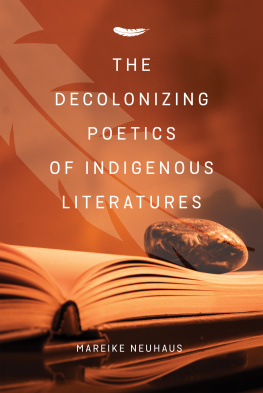

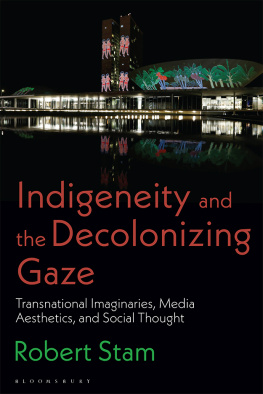
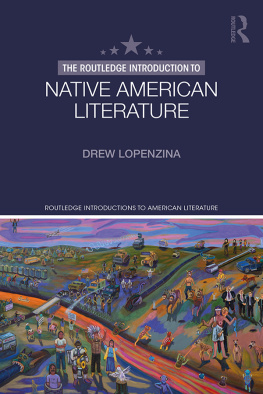
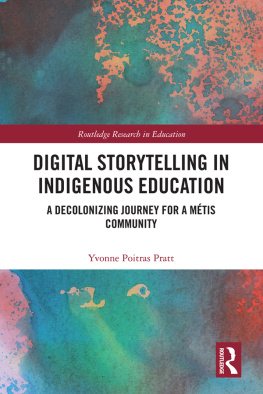
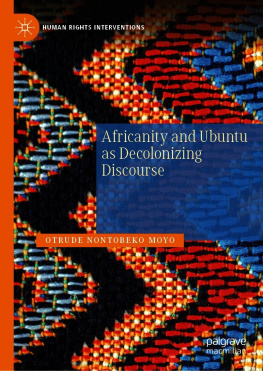
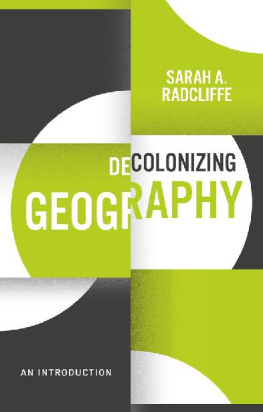
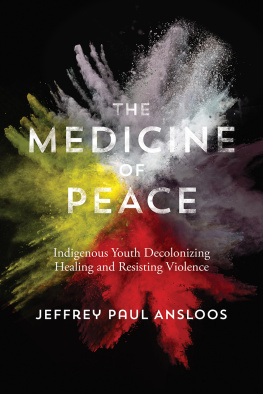
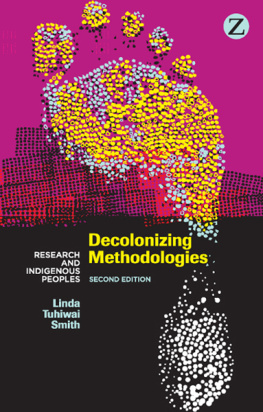
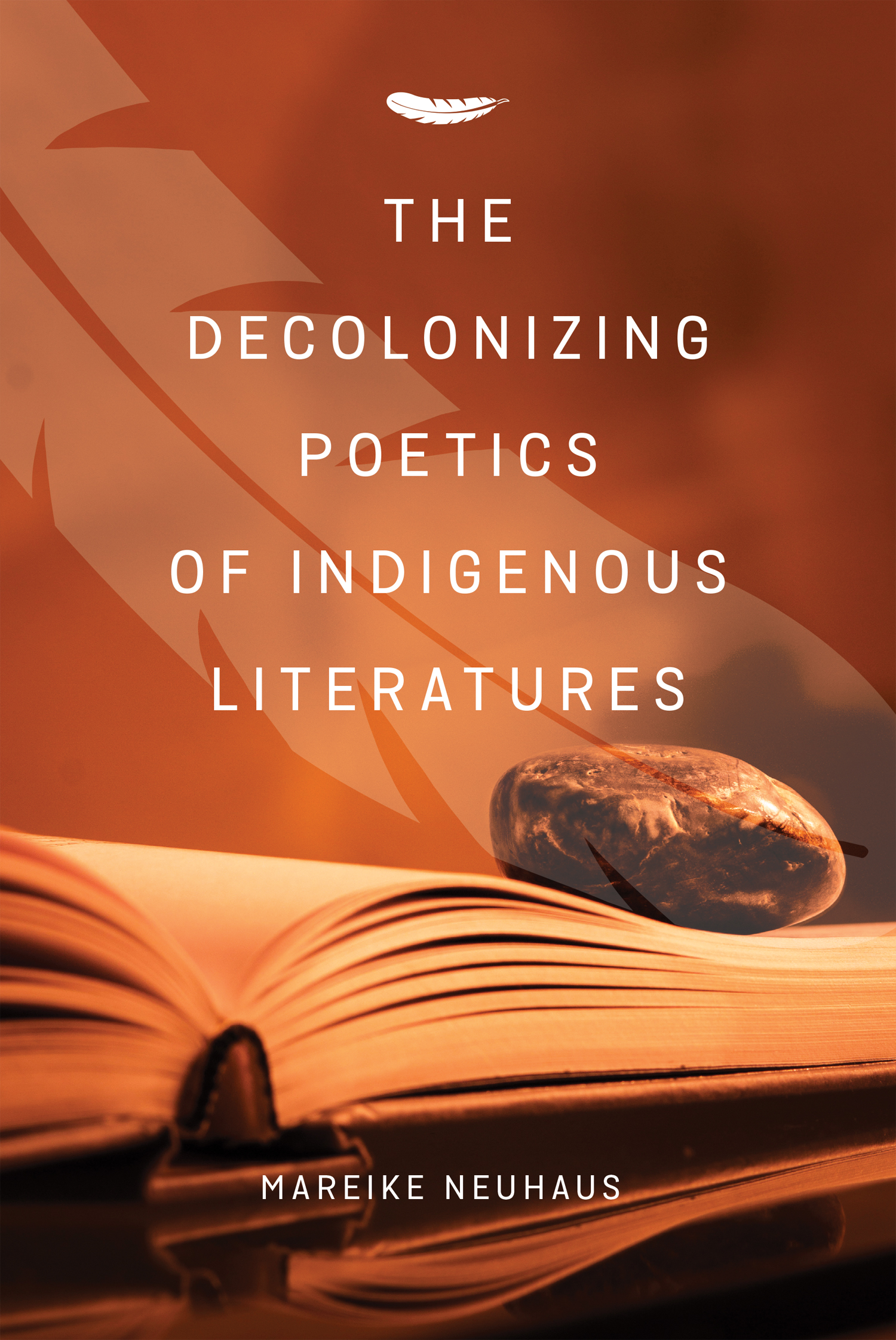


 University of Regina Press, University of Regina
University of Regina Press, University of Regina


